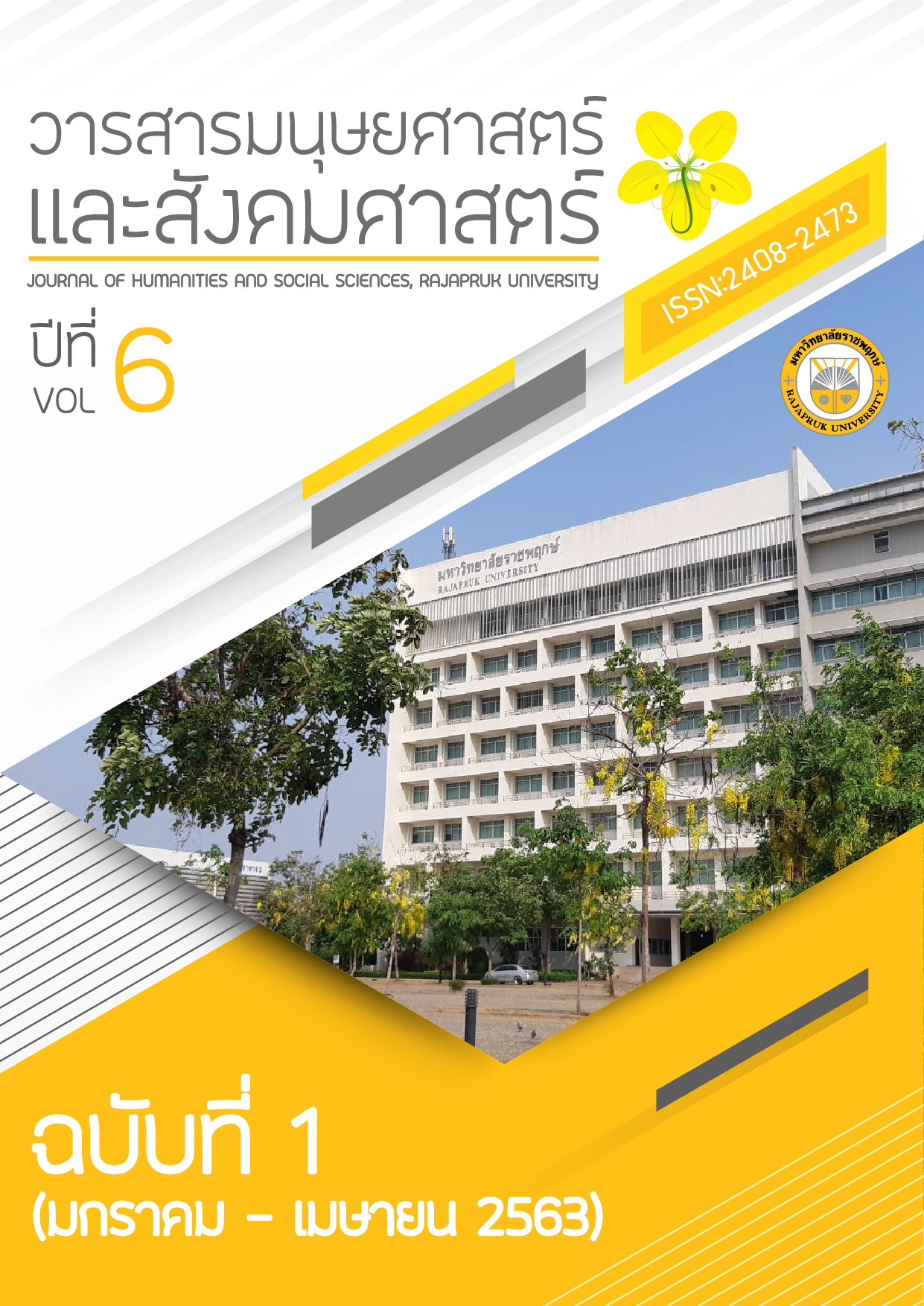The Guideline for Development Professional Learning Communities in School under Nong Bua Lam Phu Primary Educational; Service Area Office 1
Main Article Content
Abstract
The purposes of this research were to: 1) study the professional learning communities in schools and, 2) find the guidelines of professional learning communities development in schools under Nong Bua Lam Phu Primary Educational Service Area Office 1. The research process was divided into 2 phases. Phase 1 was to study the professional learning communities in schools. The samples of this study were 310 teachers and the research instrument with a 5-level-rating-scale questionnaire. The reliability of the research instrument was 0.97. The statistic for data analysis that consisted of the mean and standard deviation. Phase 2 was to find out the guidelines of professional learning communities development in schools. The informants in the study were 12 persons selected through the purposive sampling method using by semi-structured interview for data collection. The content analysis and confirmation of guidelines by the same group of data providers. The data analysis consisted of percentage. The research found that: 1) The professional learning communities in schools was at the high level both overall and each aspect. 2) Guidelines professional learning communities development in school in all six elements: 1) shared leadership 2) shared vision 3) collaborative teamwork 4) reflection review 5) supportive and 6) professional learning and development were confirmed that can be used in all guidelines.
Article Details
References
ทิศนา แขมมณี. (2557). “ปลุกการสอนให้มีชีวิตสู่ห้องเรียนแห่งศตวรรษใหม่,” ใน เอกสารประกอบการประชุมวิชาการอภิวัฒน์การเรียนรู้ สู่จุดเปลี่ยนประเทศไทย. หน้า 20 - 24. กรุงเทพฯ: สำนักงานส่งเสริมสังคมแห่งการเรียนรู้และคุณภาพเยาวชน.
บุญชม ศรีสะอาด. (2545). การวิจัยเบื้องต้น. พิมพ์ครั้งที่ 7. กรุงเทพฯ: สุวีริยาสาส์น.
ปภาวี พิพัฒนลักษณ์. (2557). กลยุทธ์การพัฒนาภาวะผู้นำของผู้บริหารโรงเรียนเรียนร่วมตามแนวคิดภาวะผู้นำที่ยั่งยืนเพื่อเสริมสร้างชุมชนการเรียนรู้ทางวิชาชีพ. ปริญญาครุศาสตรดุษฎีบัณฑิต สาขาวิชาบริหารการศึกษา จุฬาลงกรณ์มหาวิทยาลัย.
ปองทิพย์ เทพอารีย์. (2557). การพัฒนารูปแบบชุมชนแห่งการเรียนรู้เชิงวิชาชีพสำหรับครูประถมศึกษา. ปริญญานิพนธ์การศึกษาดุษฎีบัณฑิต สาขาวิจัยและพัฒนาหลักสูตร มหาวิทยาลัยศรีนครินทรวิโรฒ.
มารุต พัฒผล. (2557). การจัดการเรียนรู้ที่เสริมสร้างการรู้คิดและความสุขในการเรียนรู้. พิมพ์ครั้งที่ 2. กรุงเทพฯ: จรัลสนิทวงศ์การพิมพ์.
มินตรา ลายสนิทเสรีกุล. (2557). กลยุทธ์การบริหารโรงเรียนสู่การเป็นชุมชนแห่งการเรียนรู้วิชาชีพของโรงเรียนมัธยมศึกษาในสหวิทยาเขตเบญจบูรพา กรุงเทพมหานคร. ปริญญาครุศาสตรมหาบัณฑิต สาขาวิชาบริหารการศึกษา จุฬาลงกรณ์มหาวิทยาลัย.
รัตนะ บัวสนธ์. (2556). วิจัยเชิงคุณภาพการศึกษา. พิมพ์ครั้งที่ 4. กรุงเทพฯ: สำนักพิมพ์แห่งจุฬาลงกรณ์มหาวิทยาลัย.
วรลักษณ์ ชูกำเนิด. (2557). โรงเรียนแห่งชุมชนการเรียนรู้ทางวิชาชีพครู เพื่อการพัฒนาวิชาชีพครูที่เน้นผู้เรียนเป็นหัวใจสำคัญ, วารสารวิทยบริการ มหาวิทยาลัยสงขลานครินทร์. 25(1) มกราคม - เมษายน: 93 – 102.
วิจารณ์ พานิช. (2555). วิถีสร้างการเรียนรู้เพื่อศิษย์ในศตวรรษที่ 21. กรุงเทพฯ: มูลนิธิสดศรี- สฤษดิ์วงศ์.
เสริมศักดิ์ วิศาลาภรณ์ และคณะ. (2545). รายงานการวิจัยรูปแบบเครือข่ายการพัฒนาครูและบุคลากรทางการศึกษาตามพระราชบัญญัติการศึกษาแห่งชาติ พ.ศ. 2542. กรุงเทพฯ: สำนักงานคณะกรรมการข้าราชการครู.
สำนักงานเขตพื้นที่การศึกษาประถมศึกษาหนองบัวลำภู เขต 1. (2561). แผนพัฒนาการศึกษาขั้นพื้นฐาน 5 ปี (พ.ศ. 2561-2565). หนองบัวลำภู: สำนักงานฯ.
DuFour, R. (2004). What is a professional learning community. Educational Leadership, 61(8): 6 - 11.
Hord, S. M. (2003). Professional learning communities: Communities of continuous inquiry and improvement. Austin: Southwest Educational Development Laboratory.
Krejicie, R. V. and Morgan, D. W. (1970). Determining Sample Size For Research Activities. Education And Psychological Measurement. 30(3): 607 - 610.
Rovinelli, R. J., and Hambleton, R. K. (1977). On the use of content specialists in the assessment of criterion-referenced test item validity. Dutch Journal of Educational Research, 2: 49 - 60.


